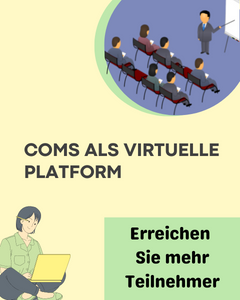Konferenzen > Ingenieurwissenschaften > Transport und Logistik > Deutschland
Wählen Sie ein Land aus
Deutschland
1
EACES2026 — European Automotive Decarbonization and Sustainability Summit 2026
23. Mär 2026 - 24. Mär 2026 • Frankfurt, Deutschland
Eintrags-ID:
1673569
2
EACES2026 — European Automotive Circular Economy Summit 2026
23. Mär 2026 - 24. Mär 2026 • Frankfurt, Deutschland
Eintrags-ID:
1673524
3
Dagstuhl-Seminar — Algorithmic Advances for a New Era of Data-Driven, Multi-Modal Transit Systems
19. Jul 2026 - 24. Jul 2026 • Schloss Dagstuhl, Deutschland
Eintrags-ID:
1671678
Webseite:
Conference-Service.com stellt der Öffentlichkeit ein Kalendarium wichtiger Konferenzen, Symposien und sonstiger Tagungen im wissenschaftlich-technischen Bereich zur Verfügung. Obwohl das Verzeichnis mit großer Sorgfalt zusammengestellt und ständig aktualisiert wird, weisen wir auf die Möglichkeit von Fehlern ausdrücklich hin. Bitte vergewissern Sie sich immer beim Veranstalter, bevor Sie über die Teilnahme oder Nichtteilnahme an einer Konferenz entscheiden.
Stand vom 26. August 2025



